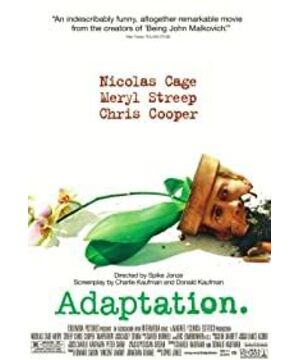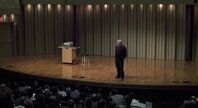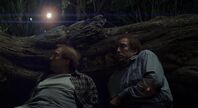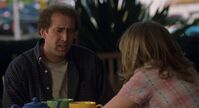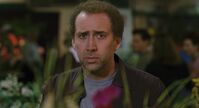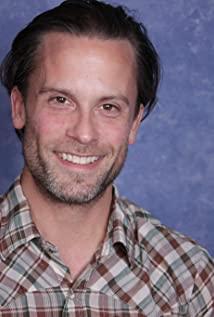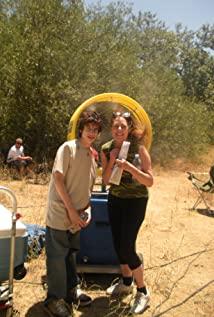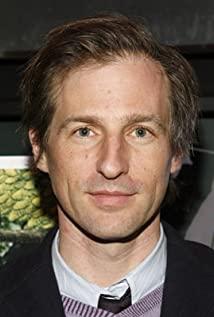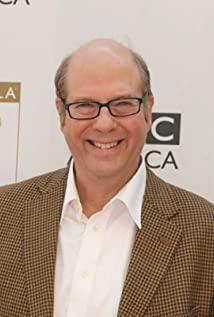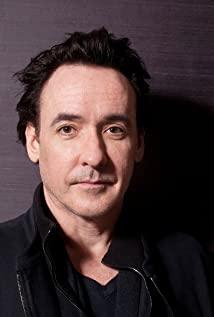This is a film about a screenwriter's story. The interweaving and contrasting structure is reminiscent of the layered structure of "play within a play". However, the contrast between difference and time and space involves two stories and three character viewpoints in the narrative: about A Hollywood story in which a screenwriter wants to adapt the script, a tragedy in which a reporter fell in love with the investigation object "Orchid Thief" but was destroyed. The relationship between the two is completed through the text narration in the reporter's best-selling novel. It contains three layers of narrative perspectives, wandering between the inner perspective and the omniscient perspective, and finally merges into a "Hollywood ending" in a certain sense.
The film begins with the monologue of a screenwriter, the inferior and sensitive protagonist - Charlie Kaufman, played by Nicolas Cage himself, from which the first narrator begins to establish. The relationship between reality and fiction in this layer of narrative is ambiguous. The conscious blurring of the real boundaries is a major feature of the real screenwriter of the film "Charlie Kaufman". The protagonist is the screenwriter's name, and the film also restores the real shooting scene of "Becoming John Malkovich". It can be seen that the author integrates his own life into the fictional works, as well as the anatomy of his own mental state and his views on life.
In Charlie Kaufman's story line, the core purpose is to write the screenwriting task given to him by the producer, and it occupies the main part of the whole film. The authorship of this passage is perfectly compatible with Hollywood-style screenwriting rules, and then deconstructs Hollywood in this way. In the structure of the story, the text is about the price drawn by a protagonist with a clear goal in order to achieve his goal, after suffering and setbacks, he finally completes the story of self-transformation. ——Reflected in how Charlie Kaufman racked his brains and tried to write a movie script adapted from a best-selling novel, after a low ebb, with the help of his mentor and the help of his partner, the prototype adventure. This layer mainly uses the method of inner narration to show the thinking process of his brain, the monologue of his own cognition and views, the inner heart when he gets along with Amy, and the brainstorming process when writing the script. The turning point of Kaufman's use of McKee (also a character in reality) as a teacher as a character, he obviously resists Hollywood stories, but completes the script towards the structure of Hollywood type films, which seems to symbolize his compromise to Hollywood, self-confidence The meaning of digestion is strong.
The interesting thing is that the screenwriter's character structure of twins strengthens the dialectical strength. Kaufman is immersed in the rich imagination of his heart and brain. He has his own views on creating stories. The artistic expression you want. And his younger brother Dono also wants to become a well-known screenwriter like Charlie. After listening to Robert McKee's lecture, he is in high spirits and wants to use his skills to create stories. At the same time, he is stronger in communication than Charlie, and it is easy to put makeup on the set. The teacher took it home. It's like an alternate self in Charlie's mind, the self he wants to be in terms of communication, and the self he hates in terms of creation. Neutralize and produce Charlie who is not good at communication in reality but has his own creative ideas. Just like Freud's exposition of the three personalities of human beings, the real Charlie belongs to the "id" level, while Donald is the "superego" level, which is Charlie in the imaginary world.
The film's second-level perspective shift begins with Charlie's discussion with producer Amy about the adaptation of Susan Olin's The Orchid Thief, which leads to female reporter and author Susan, who interviews the Orchid Thief in The New Yorker published a report, and then moved through the camera to the screen of Susan, played by Meryl Streep, writing the novel.
The third perspective begins with Susan, who writes novels in front of the computer. The film transitions from the novels written by Susan to the world of Lao Xu, the character in his pen. Naturally, his protagonist is Lao Xu, and the characters appear when Lao Xu brings A group of Indian workers went to the swamp to "illegally" pick flowers. The three narrators are all established within less than eight minutes of the film's opening, and the entire film is also structured in three lines by the three narrators. The overall film uses matching editing to achieve the transformation of the three perspectives. The perspective of Lao Xu, the flower thief in the novel, is shown through the conversation with Susan. Using different ways of showing perspectives, the perspectives of the three narrators are not single and interact in the film at the same time. In this film, narrative skills are combined with film editing skills. Switch back and forth freely between the three narrators, merging.
Susan's perspective is to show interesting things from the perspective through action by entering the history of the characters and the presentation of interviews. The perspective in this film is a fluid structure. As the plot of the movie progresses, Ou Lin's contact with Lao Xu, the former's perspective and Lao Xu's perspective merge, and the symbolic element of "orchid" is condensed from it. For Kaufman and Olin, the theme was elucidated; "Ghost Orchid" indicates the passion used to face danger and difficulty. For Kaufman, it symbolizes the beauty of art, the pure artistic ideal, which can be fatal It's a dangerous relationship for Ou Lin. During the part where Lao Xu took Ou Lin into the swamp, Lao Xu seemed to be intimidated by Lao Xu because he was lost in the swamp and couldn't find the "Ghost Orchid". A little disillusioned, this episode picks up on Kaufman himself, who went to McKee's class, and his disappointment and meaninglessness in life almost maintains a highly interconnected spiritual logic with Susan in the previous paragraph.
From the beginning of the film, Charlie's personal view of the play is extremely personal. He doesn't believe in any rules or principles in the screenplay. He doesn't even see himself as a screenwriter, a writer, and believes that a writer should use words. It is his duty to explore the unknown world and fundamentally refute all the techniques and rules of Robert McKee, which is completely opposite to the twin brothers. And in the second half, when Charlie personally went to a lecture given by the famous Hollywood playwright Robert McKee, McKee said: "If you want to use narration and only God can help you, it is the most sloppy and loose way to write it. ." Before this sentence, Charlie Kaufman just filled the movie with a large section of Charlie's inner monologue, filled with a lot of self-evasion and denial, in order to mock Hollywood's traditional drama system. At the end of the paragraph, Kaufman listened to McKee's opinion and stopped writing the script with self-centeredness. This action completed self-change, which can also be said to be a compromise, and then found the idea and courage to restart the script.
This paragraph follows Ou Lin's point of view, and finds that "Ghost Orchid" represents a reawakening and return of passion for life, returning to the revelation of Xu Ruizhi from the perspective of the novel: "As long as you follow your talent, there is a wonderful meaning behind it. Existence, from this perspective, is telling us how to live." Ou Lin chose to cheat and be with Lao Xu. The film transfers the experience to the story through the novel in the second perspective and grafts it to Kaufman's line, making the metaphor of "orchid" organically combined with Kaufman. For Susan who found the ghost orchid, the metaphor means "finding true love", that is, Lao Xu himself, so the viewpoint is pulled from Susan's novel, and it is integrated with the story of Lao Xu's third point of view. Said that at the beginning of the film, the two stories do not intersect with each other, and the continuity in the structure is broken. The time, space and events of the film are rich and diverse, and they are completely subordinate to the narrative characters in the film, maintaining a non-coherent parallel state. In "Orchid", the two stories develop into a complete body, and the stories go through a loop and cross to form a narrative structure, forming a special relationship where order is assembled from disorder.
The narrative structure in "Adapted Screenplay" can be said to be a nested structure, but in a non-traditional sense, the relationship between the three perspectives involved and the two main stories is more complex, starting with Charlie writing the script, and then Susan The writing story is inserted, and the sequence in which Susan wrote the story and went to interview is narrated, but the whole is not completely in such a flashback structure, and in the second half of the film, when the three narrators are in the same space across time and space It also breaks the single flashback structure.
In Susan's second point of view, Susan went to interview and found Lao Xu in court. After the court, she met with Lao Xu to understand the matter. From then on, the connection between the narrator and the narrator was established, and the two were no longer independent of each other. The characters in time and space, but broken in the same time and space. On the other hand, after the book has been published, Charlie has a problem writing the script and needs to communicate with the original author. He goes to New York to meet Susan in the elevator, but due to his own character, he cannot communicate, but at that time , another layer of narrator and narrated encounter.
This paragraph node was mentioned by the author for the second time, because "Ghost Orchid" was found by Lao Xu in this paragraph, which played a pivotal stage task for the overall structure.
The second half of the film combines the themes that the film wants to convey. When Charlie was writing the script at the end, he didn't know how to end it. He listened to McKee's lecture at his brother's suggestion. After the lecture, McGee's suggestion let him With an idea, he asked Susan and Lao Xu to establish a relationship in the script. In the two's house, Charlie sneaked in to observe and discover the inspiration for the ending of the creation. At this time, Susan and Lao Xu discovered that the three were in a relationship. in a room. At this point, the narrative structure has been completed, and the three clues and three narrative perspectives are unified respectively, and then use Hollywood's consistent elements of "kidnapping", "pursuit", "crash", "gun" and other elements, together with horror, suspense and gripping music, continue to use "Mechanical Seances" to create the ending that McKee taught him, but that's not the subject of "Adaptation," where Charlie Kaufman satirizes everything about Hollywood drama.
In this sense, the death of the twins symbolizes the spiritual unity of the characters. Through the climax of the ending, Lao Xu can't be killed by a crocodile, and Olin ushered in a tragic ending. Kaufman finally completed the script with this inspiration. Writing, Kaufman writes himself into the script, and then asks Kaufman in the script to write the story of the script into his own script, just like a tongue twister. From all the works written by Charlie Kaufman, "Script Adaptation" The double dialectics above which the structure tends towards opposition and unity is the unprecedented harmonious relationship between author's self-deconstruction, narcissism and commercial elements in his works. I would like to compare the structure of the ancient Greek temple to this film - built on a sufficiently self-consistent narrative stone foundation, the different structures in the film structure are like the columns arranged in the temple, magnificent and exquisite, as for the roof is the crisis narrative And suspense psychology, it does not collapse, and even makes a final trade-off between authorship and commerciality - the end of commerciality constitutes a reversal of Hollywood's emotional tendencies.
View more about Adaptation. reviews


